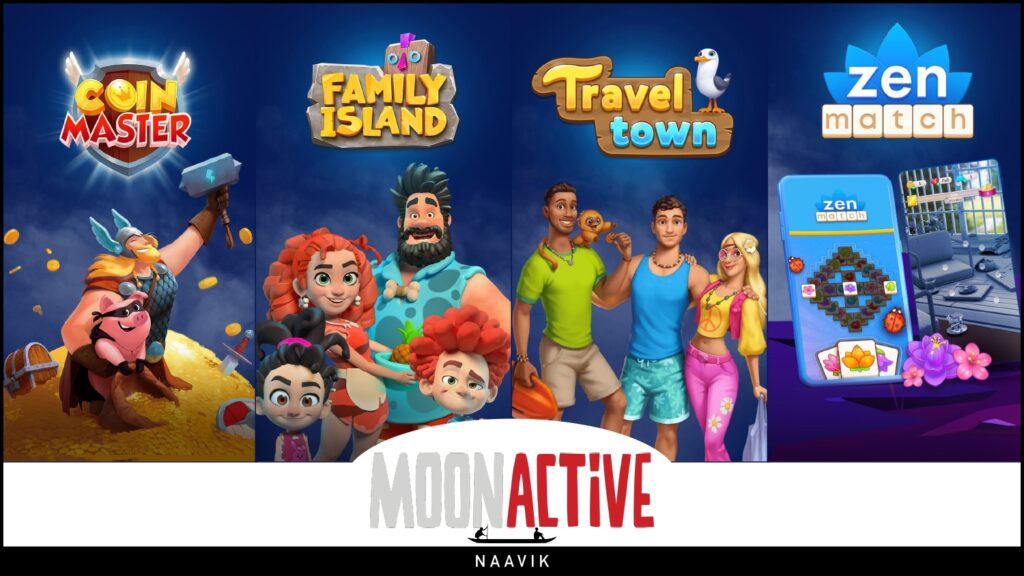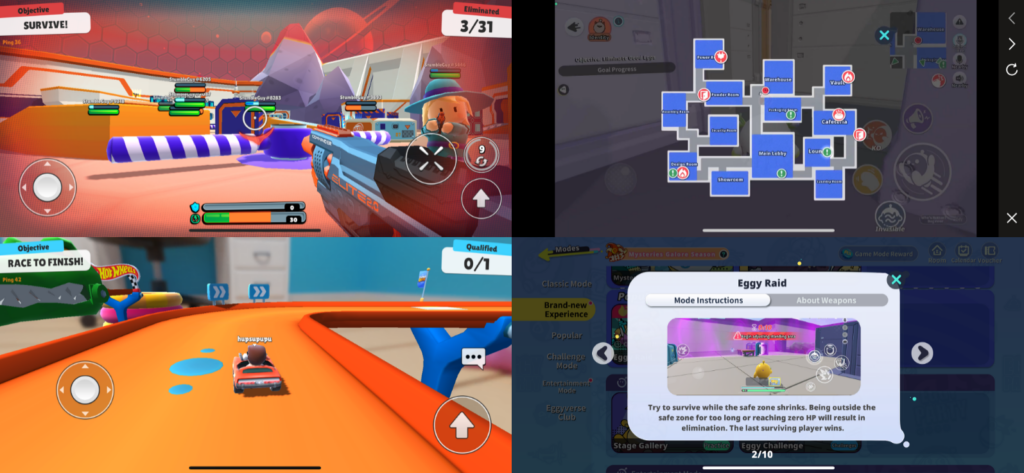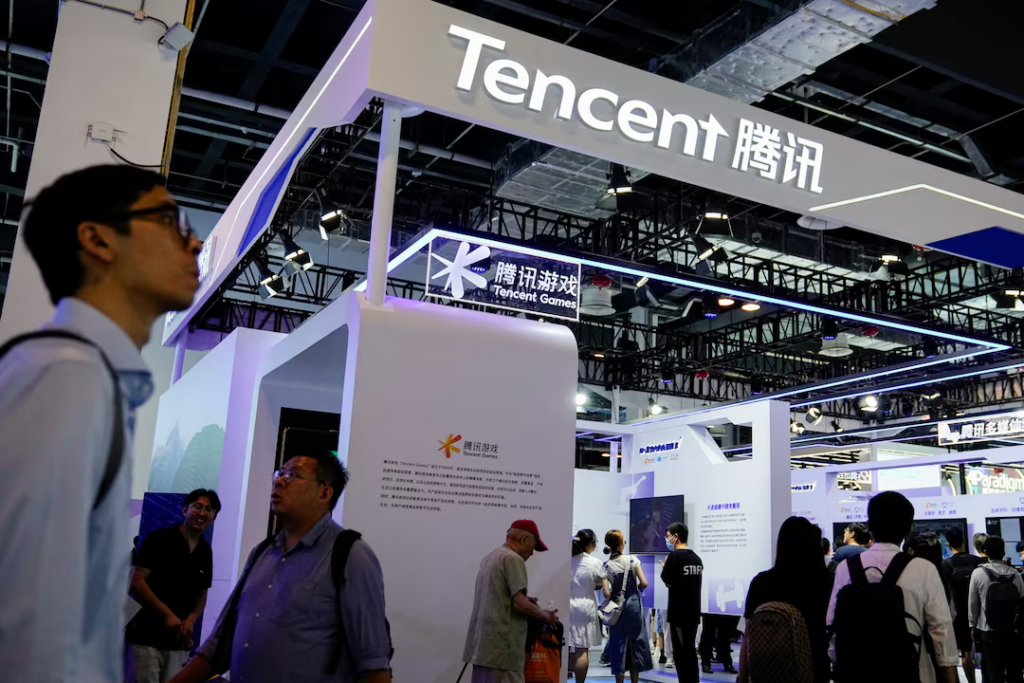Hi Everyone. Two quick notes before we jump into today's issue:
-
As we scale our team, we’re looking for analysts, writers and consultants to support our crypto gaming efforts at Naavik. These are paid opportunities to work closely with some of the top companies across the industry. Our ideal candidate has games industry design, economy, product management, financial analysis experience and is passionate about figuring out the future of crypto gaming with us.
-
We're also looking to add a new host to our podcast initiatives. If you're interested in hosting weekly conversations and interviews about the future of games, please reach out.
If either of these opportunities speak to you, or you just want to connect with our team, please feel free to get in touch.
Crypto Corner #8: Why Gamers Hate NFTs
Over the past months, we’ve seen significant backlash from the gaming community when gaming companies NFTs in their games. In this Crypto Corner episode, Lars Doucet and Ethan Levy join Nico to have an open-minded discussion about whether these concerns are really valid, and what the blockchain gaming community can do to address them.
As always, you can find us on Spotify, Apple Podcasts, Google Podcasts, our website, or anywhere else you listen to podcasts. Also, remember to shoot us any questions here.
Breaking Down DeFi Kingdoms
Source: DeFi Kingdoms
One of the reasons that games like Axie Infinity seem to generate so much hype is because they serve as an easy to understand on-ramp for Web3 concepts. More clearly put, the best crypto games distill difficult crypto concepts using a familiar interface to give users a clearer idea on what the technology can actually do. The idea of a utility-based NFT as an in-game item that can be owned, traded, or sold, feels compelling.
With the above in mind, I always think it's worth exploring new games that take this simplification concept a step further and use gamification to turn fundamental crypto concepts into fun user experiences. One game with a lot of recent traction is DeFi Kingdoms, which is built on the Harmony blockchain. In short, it’s a crypto gaming project that gamifies the concept of a decentralized exchange (DEX). Its native currency, Jewel, sits at a $1.1B market cap.
DeFi Kingdom’s Explosive Growth Since launching in Sept 21 | Source: DappRadar
At its core, the current iteration of DeFi Kingdom is a gaming-skin for decentralized finance. While other titles focus on buying and selling NFTs, DeFi Kingdom is starting out by using games to make it fun to invest in crypto via the game’s growing economy. Think of it almost as a mix of Robinhood and Final Fantasy.
What I love about DeFi Kingdoms is how it adapts hard to learn concepts (DeFi; one of the main critiques of new users in crypto) into a UI that is familiar and easy to hop into. This is the power of DeFi Kingdoms and GameFi writ large – to layer on a new component (financialization) into something ostensibly more simple, social, and fun. It’s the simplicity (and the potential to make money) that has made the game skyrocket in popularity. What is DeFi Kingdom’s true potential, and how are they planning to execute on it? What does DeFi Kingdom look like now and what could it be in the future? Let’s jump in.
A look at everything to do in DeFi Kingdom | Source: DeFi Kingdom
What Makes DeFi Kingdom Different?
The team behind DeFi Kingdoms describes the project as “a game, a DEX, a liquidity pool opportunity, and a market of rare utility-driven NFTs, playing out seamlessly in the incredibly nostalgic form of fantasy pixel art.” It’s an ambitious claim, but taking a closer look actually reveals a framework by which we can understand DeFi Kingdom as it exists today, and could exist in the future. More specifically, the game includes:
-
A Decentralized Exchange and token-powered ecosystem
-
A liquidity provider pool in the form of in-game banks and gardens
-
A NFT asset platform reskinned as a high-fantasy exploration game
$JEWEL & The Decentralized Exchange (DEX)
At the core of DeFi Kingdom sits the $JEWEL token. It’s best to think of JEWEL as a combination of a traditional crypto token and an in-game currency like you’d see in a game such as World of Warcraft. Everything in-game is powered by JEWEL. The community’s roadmap is governed by token owners. Proceeds from the token’s transactions go to developers, player rewards, and community funds. Buying NFTs and earning financial rewards require players to be holding JEWEL. It’s the lifeblood that powers the game’s ecosystem. Players can acquire JEWEL by either purchasing it via the game’s decentralized market (which is designed to look like an actual market), or earning it through alternative means. The token can even be staked in game to earn liquidity provider rewards, including higher yield JEWEL returns to be spent on more features within the game. None of these components are new underlying innovations in DeFi but the way DeFi Kingdoms has presented them to the user — as a game — is unique.
The DeFi Kingdom DEX | Source: DeFi Kingdom
The Liquidity Provider Pool
As I touched on above, staking JEWEL in service of supporting the DeFi Kingdom’s financial economy has also been gamified. Players can stake their tokens in one of two ways in-game to earn a variety of rewards:
-
The Bank: The “more safe” of the two options, the game’s bank is a single staking pool system that allows players to trade JEWEL for xJEWEL (a la the Sushi model), a governance token that represents the ownership share of the bank. As transactions take place across the DeFi Kingdom ecosystem, the bank itself will receive fees and in turn use this to buy more JEWEL, thereby increasing the value of an investors xJEWEL. The Bank’s fee sharing system is almost like purchasing stock in the game’s bank and earning dividends over time.
-
The Garden: Alternatively, as players stake their JEWEL, they can invest their new liquidity into the game’s Garden. In the Gardens, players receive plots of land proportional to the total share they’ve provided to the game's liquidity. Over time an NPC farmer will harvest plants for providers and store them for players to claim. Because of the high yield provided by The Gardens, rewards for players are locked behind time gates in order to ensure the game's tokenomics remain balanced and fair. As time progresses and DeFi Kingdom becomes more mature, players can earn a larger portion of their staking rewards as soon as they are available to claim, or purchase NFTs or other buffs to expedite the game’s yield generation and locking system. The game has also implemented withdrawal fees to prevent the classic “pump and dump” schemes.
The NFT Platform + Game
All this said, the actual game is still in its early phases. With promises of a whole host of traditional play-to-earn-esque mechanics on the horizon, there’s not much to dive into here quite yet. Some of the most noteworthy roadmap items include:
-
Heroes: Interactive NFTs that can be bought, sold, or loaned out for JEWEL. Each character comes with a litany of traditional high-fantasy RPG traits, including stats, levels and pets.
-
Kingdoms: In-game plots of land that players can own to increase their staking rewards, provide character buffs or generate financial rewards.
-
Player vs Player Tournaments: Once the game’s world is fully baked out, the developers plan to release a battle system, complete with betting, leveling, and more traditional RPG-like mechanics.
Where Does DeFi Kingdom Fall in the Grand Scheme of Things?
From a financial perspective, DeFi Kingdom is leveraging the crypto gaming handbook by opting to sell a portion of its token supply in lieu of turning to VCs for funding. While this technique undoubtedly helps the team raise the cash backing they need to help scale the product into a full-time endeavor, it can be a double edged sword. The crypto space is full of plenty of investors optimizing for the quick flip, and the company might be building a community based on financial incentives rather than a true appreciation for the game itself.
As I mentioned, DeFi Kingdoms is a financial system reskinned to feel like a game (but then again, so is Eve Online?). In the medium to long-term, this could introduce risk of large market sell offs, where early gains-focused investors choose to liquidate their stake in the company after feeling like they’ve maximized their gains, leaving a smaller handful of dedicated fans “holding the bag.” I’m curious to see how players will react and if the game’s financialization will lead to any sort of longevity. To this end, the team is hedging some long-term bets in gameplay, but it’s an interesting and novel UA strategy to hook users in through P2E from the get-go.
Details on gameplay are understandably sparse. By using DeFi mechanics to fund the project, DeFi Kingdom guaranteed that the financial product would need to launch before the game to fund the rest of the project. Early signs are promising, though. A $1.1B market cap and robust tokenomics system has all the signs of long-term success, but it’s tough to evaluate the true potential of a game when you can’t actually play it. It’s also worth noting that this “finance before game” trend seems to be growing ever prevalent in the crypto gaming space. As we noted in our breakdown of Aurory last year, market leaders in the space seem to view the financial aspects of the title as part of the gameplay itself. Sort of the “game before the game” or “community strategy”. To some, it may feel as though the company is putting the cart before the horse, but if executed correctly, I believe strong gameplay mechanics will deepen an already dedicated and financially stable community.
At its core, DeFi Kingdom is promising. The idea of simplifying the UI and UX of DeFi through gaming is novel. But with the long-term viability of financially focused games still in question and the fact that there isn’t much gameplay to date, I’m still curious whether DeFi Kingdoms can continue to attract mindshare. Why couldn’t someone just build the same mechanics into their own game? (Written by Max Lowenthal)
📚 Content Worth Consuming
Real Data: Inside Epic’s Plans for Epic Games Publishing (GameDiscoverCo): "And the Epic Games Store has been his company’s attempt to make a new, low-cost, low-rules style of platform, from an essentially altruistic place. And it was certainly serious enough to spend over $1 billion on store-exclusive advances. (But it’s never been strong on platform feature set - why was that?). Yet when we covered lawsuit document takeaways back in May, we believed that financial realities were catching up with EGS. We now have proof of this, at least as of mid-2020, thanks to some late November official court document updates spotted on Reddit. Surprised to see new, interesting data crop up after the trial concluded. The Reddit post only mentioned a fraction of the full doc, but here’s what got our attention…” Link
State of Blockchain P2E Game Design (LinkedIn Pulse): “The purpose of this article is to just take a high level view from the beginning of 2022 at what the overall design of Play 2 Earn (P2E) Blockchain Gaming looks like. The games looked at are not meant to be comprehensive and there are plenty of other variations out there, but this is focused primarily on the most popular games that are actually playable right now. Some of these are brand new releases as well so their popularity may be skewed, but I thought it would be interesting to include some fresh games to see how things may change or shift.” Link
Blockchain Gaming: Separating Signal From Noise (Coindesk): A piece from 2018 written by OpenSea cofounder and CEO, Devin Finzer. “Games frequently serve as an experimental playground for new technology. Since the launch of CryptoKitties – a digital cat-breeding game built on ethereum – roughly a year ago, games have provided a digitally native playground for early adopters to experiment with the unique benefits of open protocols. Currently, most of the top dapps by transaction volume are games. While there’s a lot of early excitement in the blockchain gaming space, there’s some rightful skepticism. Tony Sheng’s post on why Fortnite probably won’t embrace the blockchain any time soon sparked a great discussion about how the tech fundamentally changes in-game economies.” Link
BGA Blockcgain Game Report (DappRadar): “In 2020, blockchain-based games were still considered a niche. Axie Infinity, the most played blockchain game, had 15,000 Daily Active Users (DAU), and there were several questions whether a blockchain would support full games with the implications of transaction speed and costs. One year later, not only have blockchain games become widely adopted thanks to certain layer-1 networks and scaling solutions, they have created a profound impact in our society. The play-to-earn revolution that allows people to generate income while playing, stole headlines across mainstream media, placing blockchain a step closer towards mass adoption.“ Link
🔥 Featured Jobs
-
Polygon Studios: VP Gaming (Remote)
-
Rec Room: UGC Development Lead (Seattle; Remote)
-
Riot Games: Biz Ops Manager (LA)
You can view our entire job board — all of the open roles, as well as the ability to post new roles — below.
Thanks for reading, and see you next week! As always, if you have feedback let us know here.













